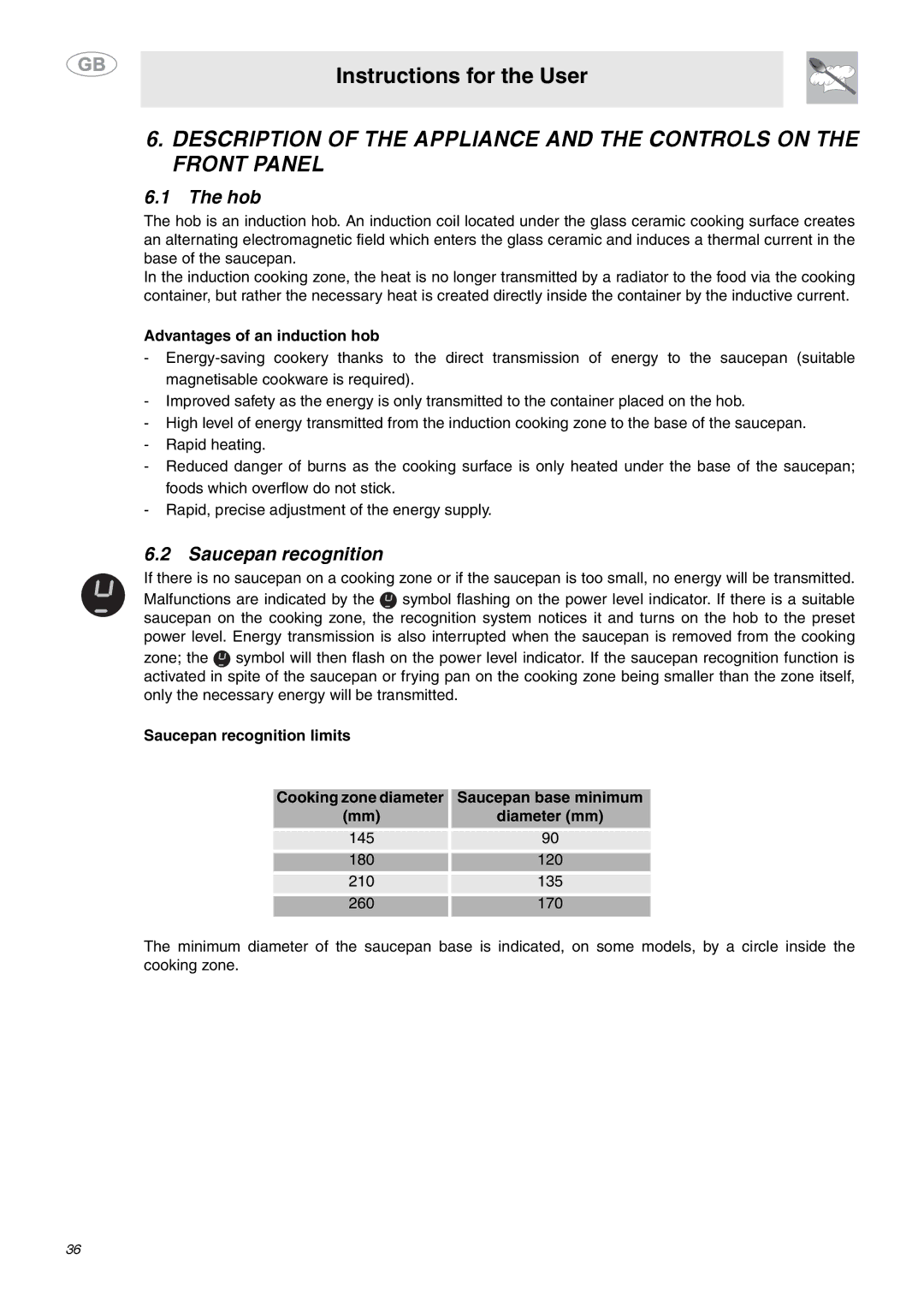
Instructions for the User
6.DESCRIPTION OF THE APPLIANCE AND THE CONTROLS ON THE FRONT PANEL
6.1 The hob
The hob is an induction hob. An induction coil located under the glass ceramic cooking surface creates an alternating electromagnetic field which enters the glass ceramic and induces a thermal current in the base of the saucepan.
In the induction cooking zone, the heat is no longer transmitted by a radiator to the food via the cooking container, but rather the necessary heat is created directly inside the container by the inductive current.
Advantages of an induction hob
-
-Improved safety as the energy is only transmitted to the container placed on the hob.
-High level of energy transmitted from the induction cooking zone to the base of the saucepan.
-Rapid heating.
-Reduced danger of burns as the cooking surface is only heated under the base of the saucepan; foods which overflow do not stick.
-Rapid, precise adjustment of the energy supply.
6.2 Saucepan recognition
If there is no saucepan on a cooking zone or if the saucepan is too small, no energy will be transmitted. Malfunctions are indicated by the ![]() symbol flashing on the power level indicator. If there is a suitable saucepan on the cooking zone, the recognition system notices it and turns on the hob to the preset power level. Energy transmission is also interrupted when the saucepan is removed from the cooking zone; the
symbol flashing on the power level indicator. If there is a suitable saucepan on the cooking zone, the recognition system notices it and turns on the hob to the preset power level. Energy transmission is also interrupted when the saucepan is removed from the cooking zone; the ![]() symbol will then flash on the power level indicator. If the saucepan recognition function is activated in spite of the saucepan or frying pan on the cooking zone being smaller than the zone itself, only the necessary energy will be transmitted.
symbol will then flash on the power level indicator. If the saucepan recognition function is activated in spite of the saucepan or frying pan on the cooking zone being smaller than the zone itself, only the necessary energy will be transmitted.
Saucepan recognition limits
Cooking zone diameter | Saucepan base minimum |
(mm) | diameter (mm) |
|
|
145 | 90 |
180 | 120 |
210 | 135 |
260 | 170 |
|
|
The minimum diameter of the saucepan base is indicated, on some models, by a circle inside the cooking zone.
36
